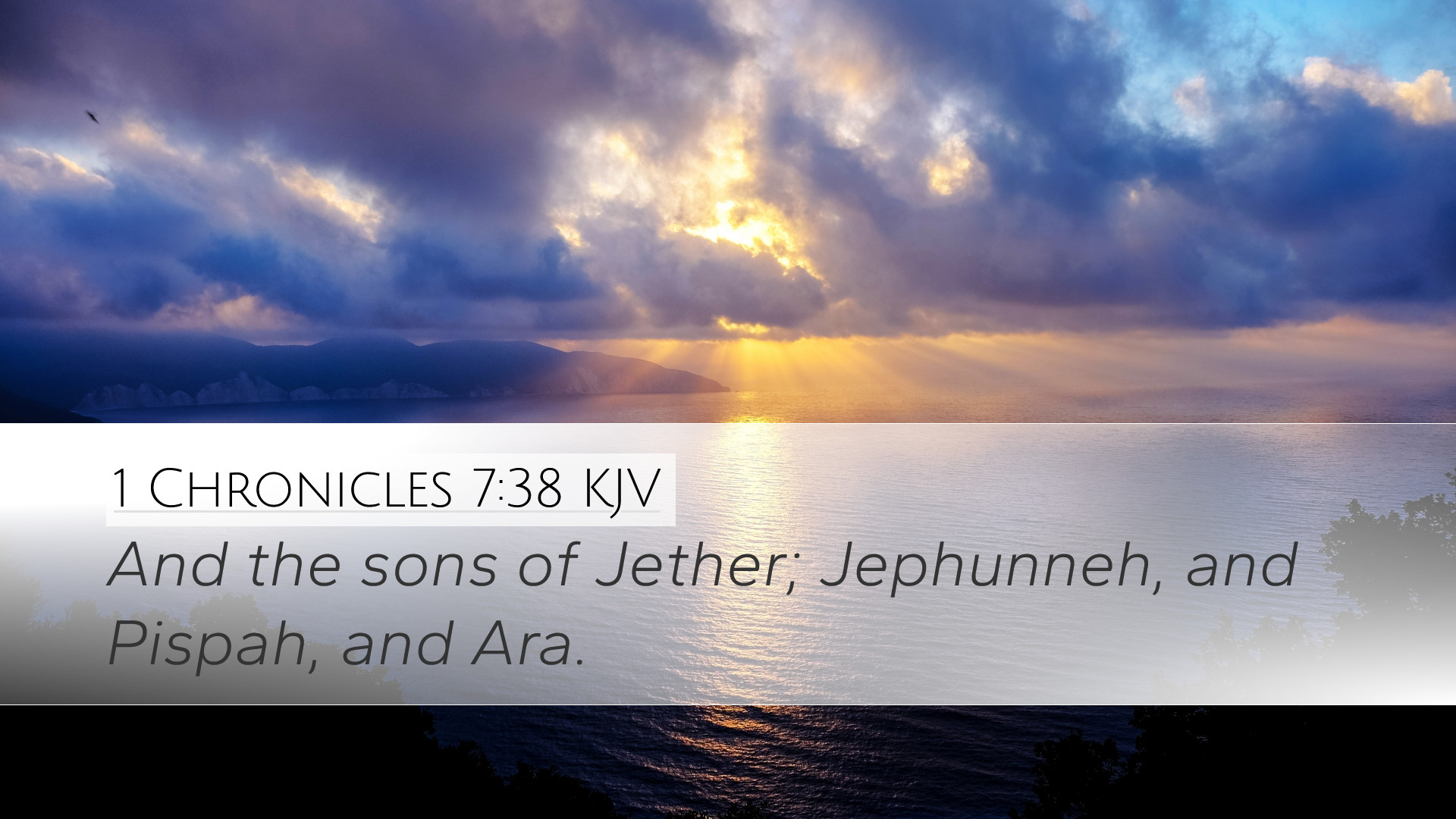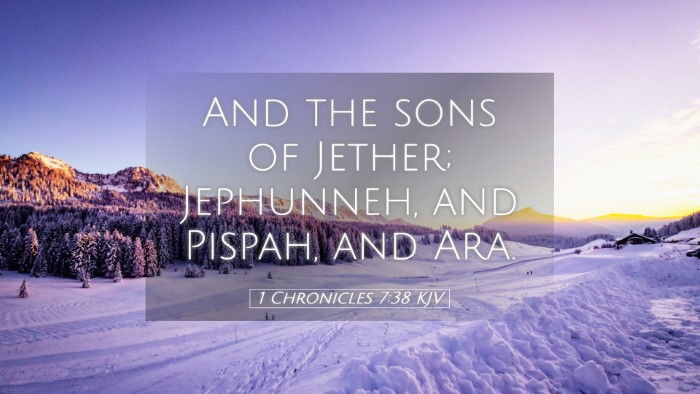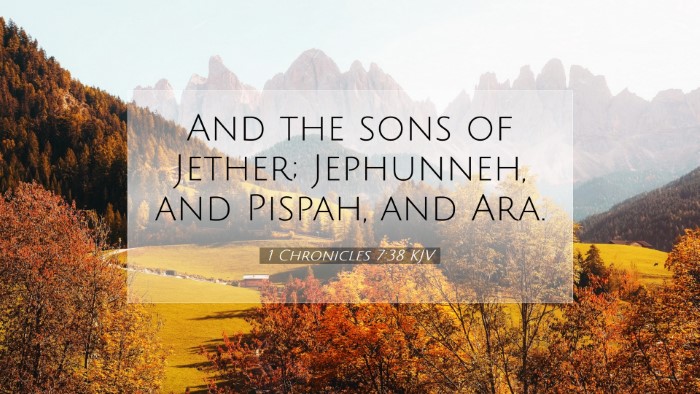Commentary on 1 Chronicles 7:38
Verse: "And the sons of Micah were, Pahath-Moab, and Amariah his son, and Zechariah." (1 Chronicles 7:38)
Introduction
This verse is embedded within the genealogical context of the Tribe of Levi, specifically focusing on the descendants of the Levite, Micah. Understanding the significance of this verse involves delving into the historical and theological implications of these names and relationships.
Historical Context
The genealogies found in the Books of Chronicles serve a pivotal purpose in Jewish history. They establish lineage, divine promise, and the continuity of God's covenant with His people. Specifically, this passage reflects on the Levites, who were set apart for religious duties and the service of God.
Examination of the Names
- Micah: A Levite whose lineage is noted for its importance. His descendants played a crucial role in the worship practices within Israel.
- Pahath-Moab: This name might denote a specific ancestry connection to the region of Moab, indicative of the interactions and sometimes conflicts between Israel and Moab.
- Amariah: The mention of Amariah here signals a continuation of the priestly line, suggesting a vested interest in the temple practices and laws.
- Zechariah: Representing the strength of God's remembrance. The name Zechariah itself implies God has remembered, which can be a nod to the faithfulness of God towards His people.
Insights from Public Domain Commentaries
Matthew Henry's Commentary
Matthew Henry focuses on the genealogical element of this passage, suggesting that each name listed has significance in the grand narrative of Israel's history. He places emphasis on the roles that these descendants serve within the religious framework of Israel. Henry provides an exploration into how genealogies affirm the enduring promises made by God, urging believers to recognize the importance of lineage in God's salvific plan.
Albert Barnes' Notes
Albert Barnes elaborates on the names specific to this verse, providing interpretations that connect them to the tribal dynamics of Israel. He notes that the genealogical lists in Chronicles highlight the Levites' involvement in worship and how critical their role was in maintaining the covenant community. Barnes suggests that these specific sons of Micah reflect the broader narrative of God's faithfulness and providence over time.
Adam Clarke's Commentary
Adam Clarke offers a theological reflection on the significance of naming within the biblical text. He outlines how names often reflect character and destiny in Scripture. Clarke draws particular attention to the implications of how these descendants serve as reminders of God's covenantal faithfulness. He emphasizes that the naming of children in the biblical context extends beyond mere identification; it encapsulates a divine purpose.
Theological Significance
Covenantal Continuity: The mention of these names emphasizes the ongoing relationship between God and His chosen people. Each descendant is part of a lineage that points to God's promises, reminding us that His plans unfold through generations.
Identity and Calling: The Levites are designated for specific service and responsibilities. The identification of Micah's sons underlines the theme of divine calling, compelling believers to reflect on their own callings within God's overarching narrative.
Memory and Remembrance: The inclusion of "Zechariah," meaning "the Lord remembers," prompts an understanding of God's faithfulness. Even amidst genealogies, there is a reminder that God is active in His people's lives, ensuring that their legacies—and prayers—are remembered.
Practical Applications
- Value of Heritage: Pastors and students should examine how understanding one's spiritual heritage enriches their ministry and personal faith.
- Importance of Service: This passage challenges believers to embrace their call to serve God actively, just as the Levites did.
- Hope in God's Promises: The narratives foster hope, reminding us that God fulfills His promises across generations, assuring the faithful of His unchanging nature.
Conclusion
The verse in 1 Chronicles 7:38, though it may seem like a mere genealogical entry, is packed with rich historical, theological, and practical significance. By combining insights from public domain commentaries, we see that the legacy of Micah and his descendants speaks profoundly to subjects of identity, covenant, and remembrance in the divine narrative. As we engage with these texts, may we be encouraged to recognize our place in the ongoing story of God's faithfulness.


